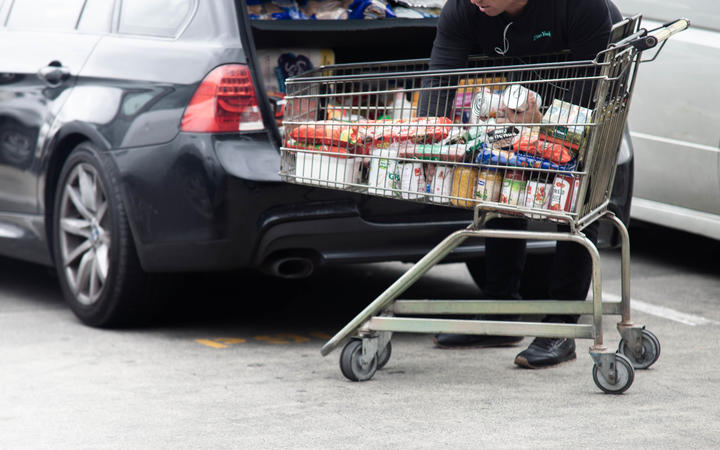
Supermarkets are already stockpiling and industries are crisis planning for the highly transmissible strain of the virus to break into the community "any day now".
Countdown Supermarkets are taking note of their sibling stores in Australia, where shelves have been are because of supply chain disruptions.
Countdown director of corporate affairs, safety and sustainability Kiri Hannifin said "when the truck drivers are sick and the supply chain members are sick, all the farmers, all the chicken operators are sick then obviously there's a short supply of product".
"We need everybody in the supply chain to keep well and be safe from Covid."
Countdown supermarkets have already been stockpiling what they can in preparation.
But before food arrives, it needs to be grown, processed and distributed across the country - all of which could lead to shortages should an outbreak stand-down large groups of staff at a time.
Vice president of the Federated Farmers Karen Williams grows malted barley on her farm.
"That goes off to a place in Marton, and is obviously a key ingredient in our beer. If [the mill] had problems, or we had problems getting the truck to go there then it just has a snowball effect on New Zealand consumers."
Some farmers were already finding it hard enough to import machinery, and were stockpiling equipment for a rainy day, Williams said.
Retailers are already feeling the squeeze of international supply, and that could be tightened further with Omicron.
KPMG Management Consulting Division partner Ian Williamson said in a bid to keep things on the shelves for longer, discounts could be minimised or halted.
"When you may have got a new TV for 30 percent or 40 percent off at a sale, you might find that it's now only 20 percent off, or not reduced this time - because why would [retailers] reduce it if they know they're going to sell out of everything?"
Retailers and supermarkets would also be concerned about consumers buying extra items, as they had been when Covid-19 spikes occurred, Williamson said.

Much of the pressure lies with the transport and freight industry, already experiencing capacity issues.
Transporting New Zealand chief executive Nick Leggett said "there'll have to be some flexibility in the supply chain, potentially, if we get to that point".
Learnings from previous lockdowns showed it difficult to determine a priority rating for products that were transported around the country, he said.
"What are the things that are really important? We do want medical supplies moved, we do want food moved, because those things are critical. But actually if a big part of the economy can continue then that too should be services by transport."
The transport and freight industry is under staffing strain and has been struggling to fill gaps to meet an increased demand.
Leggett says Transporting New Zealand wanted to know what the Government's plan was for Omicron, and how things like rapid antigen testing and stand down period will apply.
Earlier this week, Prime Minister Jacinda Ardern said that more details would be available in coming weeks.










